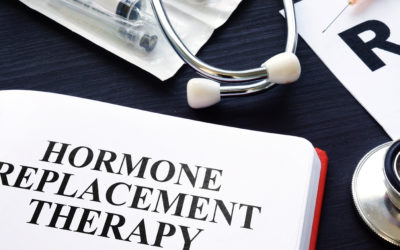Testosterone is a crucial sex hormone responsible for stimulating puberty, but did you know it’s also responsible for fat-burning, muscle-building, and even mood regulation?
Men typically experience increased testosterone levels right around puberty, but there are distinct lines between high testosterone levels and normal levels.
Having testosterone levels that are too high can lead to a number of health issues, so it’s important to know the symptoms that come along with this.
Continue reading for information on what high testosterone levels do to a man, and how to determine whether or not you fall into that category.
What Causes High Testosterone?
Testosterone levels for men are considered high if they’re above 950 ng/dL.
There are a few different things that can cause higher than normal testosterone levels in men. Some of the most common causes include:
- Testicular or adrenal tumor growth
- Taking testosterone supplements or testosterone replacement therapy
- Using anabolic steroids
If you don’t treat your high testosterone levels, they can lead to long-term health issues. This can put you at risk of suffering from heart attacks, strokes, or cardiovascular disease.
Additionally, some men’s genetics increase their chances of suffering from high testosterone levels, and this can put them at greater risk for developing blood clots and other cardiovascular health issues.
Disadvantages of High Testosterone Levels
Having high testosterone levels isn’t that common of an issue among men.
However, there are some high testosterone symptoms and disadvantages that you’ll want to keep an eye out for. These include:
- More likely to smoke and consume alcohol
- Prostate enlargement
- More likely to get injured
- More likely to display risky behavior
- Aggressive and irritable behavior
- Acne-prone skin
- Sleep apnea
- Stunted growth
- Heart or liver problems
- Mood swings
- Insomnia
- Leg and feet swelling
Don’t rely on these symptoms, however, to determine whether or not you have high testosterone levels. Your best bet to know for sure is to make an appointment with your doctor.
Diagnosis of High Testosterone Levels
Your doctor can diagnose your high testosterone levels in one of two ways — either with a physical examination or a T blood test.
With an examination, your doctor will look for the most common physical symptoms of high testosterone levels. These symptoms include excessive body hair growth and abnormal sex organ size.
With a T blood test, a sample of your blood will be taken to measure the levels of testosterone present in your body. This test is likely to be taken between the hours of seven and ten AM, as this is when your levels are at their highest.
When getting your testosterone levels checked at your doctor, they may suggest you continue to monitor your levels every five years.
Monitoring Your Testosterone Levels
Both high and low testosterone can be disruptive to your health, and it’s important you always ensure your testosterone levels are in a healthy range.
If you notice you have any of the above symptoms and suspect you may have high testosterone levels, it’s vital you reach out to your doctor as soon as possible. Catching this early is critical in decreasing the risk of complications stemming from a testosterone imbalance.
If you have any questions or would like to schedule an appointment, contact us today.











